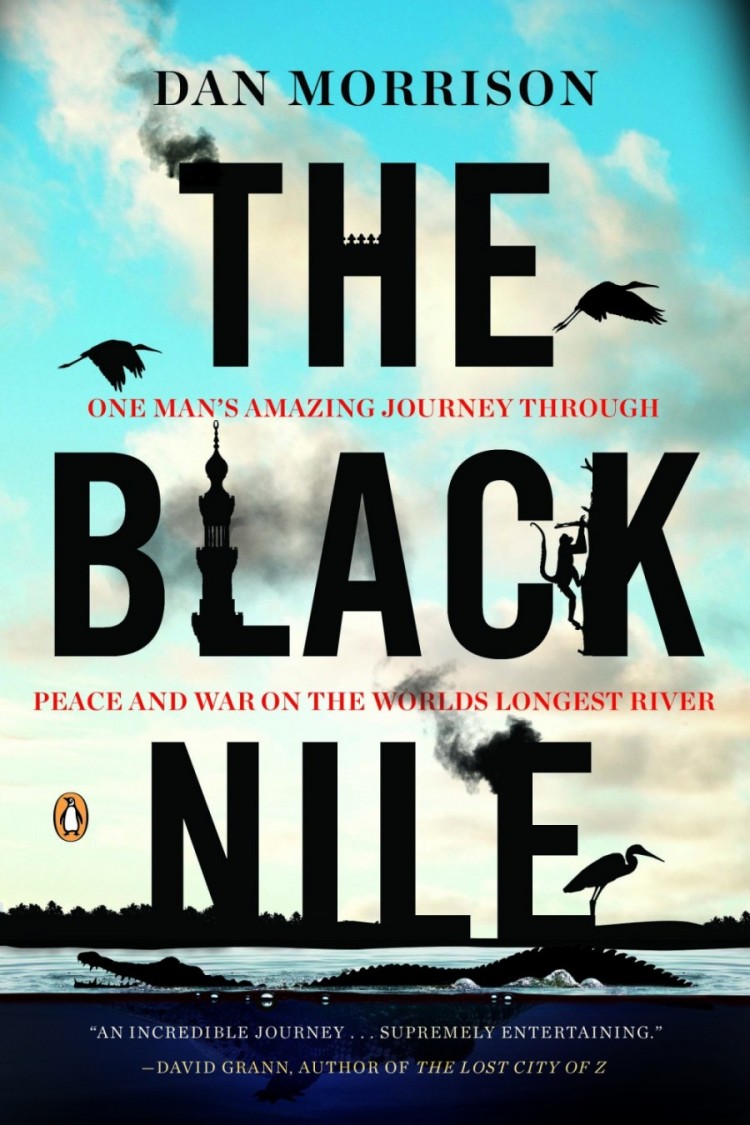“If you don’t blow your own horn, there is no music,” Jimmy Breslin, that great id of New York newspapering, said more than once (and I’ve quoted him more than once). And so: Here’s The Black Nile, profiled in The Egypt Independent. The book, “with its attention to fact and suspension of easy judgment, is the farthest kind of work from #Kony2012,” says James Purtill. And here’s The Black Nile on the summer reading list of India’s Sunday Standard magazine. And, lastly, an unexpected plug from indie publicist LuxLutus. More soon.
Praise for The Black Nile
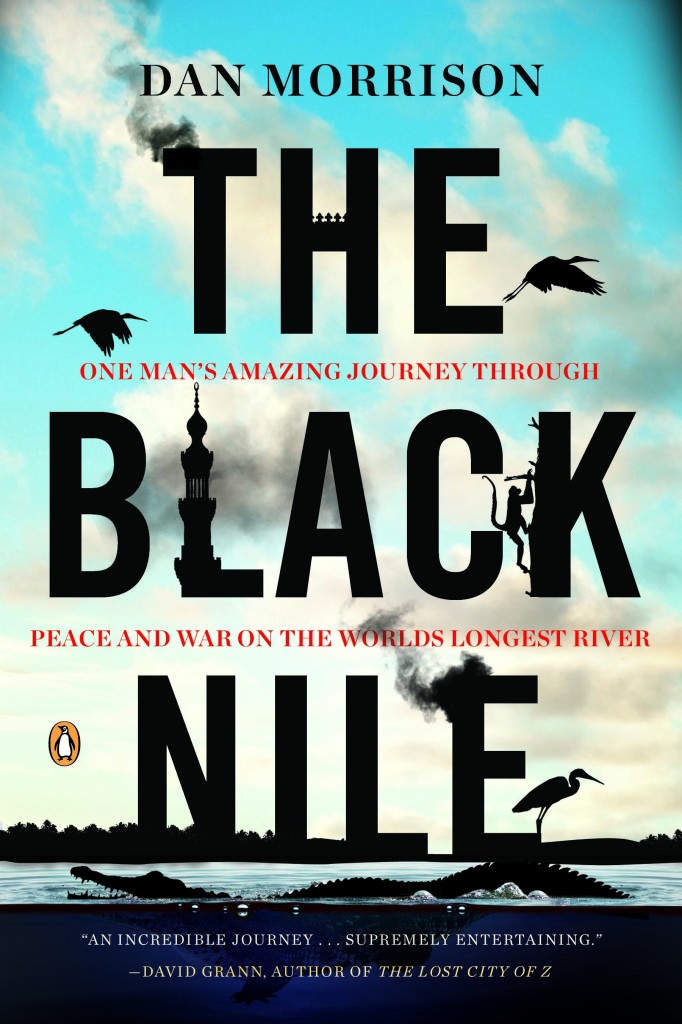 From a “nomad who pursues every form of transportation imaginable to follow Africa’s longest river,” The Black Nile is “an evocative piece of reporting…a portrait of a fractured country just one spark away from a renewal of hostilities.” –Joshua Hammer, The New York Times Sunday Book Review
From a “nomad who pursues every form of transportation imaginable to follow Africa’s longest river,” The Black Nile is “an evocative piece of reporting…a portrait of a fractured country just one spark away from a renewal of hostilities.” –Joshua Hammer, The New York Times Sunday Book Review
Beautifully written. A masterful narrative of investigative reportage, travel writing, and contemporary history. . . . The Black Nile is all at once thrilling, sad, and—most of all—thoughtful. —The Daily Beast
Dan Morrison takes the reader on an incredible journey in The Black Nile. Weaving together intense travel writing and history, he has produced a supremely entertaining work, and also an important one. —David Grann, author of The Lost City of Z
Part On the Road, part Fear and Loathing in Africa, Dan Morrison takes us with him on his journey down the Nile–teaching us, by example, to be explorers of both the world and ourselves. —Kevin Sites, author of In the Hot Zone: One Man, One Year, Twenty Wars
The Nile: Five Forgotten Cinematic Jewels
 Forget Agatha Christie’s Hercule Poirot unraveling the deadly mendacities of a steamer full of wealthy foreign tourists. Divorce your gaze from the spray-tanned Elizabeth Taylor and her cast of genuflecting thousands. For a cinematic glimpse of what life was like along the Nile in the glorious old and not-so-old days, check out these overlooked classics of exploration, identity, betrayal, and fear on the world’s longest river. (A video slideshow at the Huffington Post.)
Forget Agatha Christie’s Hercule Poirot unraveling the deadly mendacities of a steamer full of wealthy foreign tourists. Divorce your gaze from the spray-tanned Elizabeth Taylor and her cast of genuflecting thousands. For a cinematic glimpse of what life was like along the Nile in the glorious old and not-so-old days, check out these overlooked classics of exploration, identity, betrayal, and fear on the world’s longest river. (A video slideshow at the Huffington Post.)
An Interview with the Huffington Post
Travel, literature, and a little too much gunfire: Andrew Burmon talks with Dan Morrison about The Black Nile.
Leaving South Sudan with a Broken Gear Stick
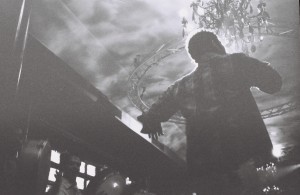 * Cruising on jellied asphalt through the northern badlands of South Sudan when the unthinkable happens. An excerpt from The Black Nile on NationalGeographic.com
* Cruising on jellied asphalt through the northern badlands of South Sudan when the unthinkable happens. An excerpt from The Black Nile on NationalGeographic.com
* In Cairo, riots, repression, and a room full of dancing men. A diverting excerpt from The Black Nile, courtesy our friends at Swink Magazine in Los Angeles.
Sudan: The UN’s report on Southern Kordofan
I’ve received a copy of the United Nations Mission in Sudan’s June human rights report on fighting in Southern Kordofan. It’s received coverage recently by the New York Times, the Guardian, and the Associated Press, among others. Still, it’s worth reading all 19 pages.
The document, which I am posting below, is detailed and grim. It confirms earlier reports of the existence of mass graves, a racial murder spree by Khartoum’s army, and the targeting of civilians by the Sudanese Armed Forces and its related militias and police.
Continue reading “Sudan: The UN’s report on Southern Kordofan”
Revolution on the Nile
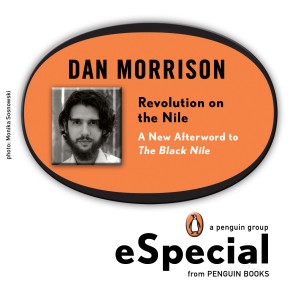 In just eight days a new country, the Republic of South Sudan, will be born. It’s a huge step – but not the last step – in a 55-years-and-counting struggle for dignity and self-determination.
In just eight days a new country, the Republic of South Sudan, will be born. It’s a huge step – but not the last step – in a 55-years-and-counting struggle for dignity and self-determination.
The south’s departure from Sudan has been as troubled as its union, with the recent fighting in Southern Kordofan and Abyei, as well as continuing insurgencies by southern renegades including George Athor and Peter Gadet. The Lord’s Resistance Army, too, remains active in the western part of the new country.
These are only the most obvious and immediate challenges faced by the southern people. Southern Sudan’s leaders, its people, and its nascent institutions will have to struggle mightily to prevent their new state from resembling the old Sudan in its approach to human rights, inclusivity, opportunity, and rule of law.
None of this should take away from the gigantic achievement that southern Independence represents. Millions died and millions more were made homeless, and endured famine, captivity and fear to get to July 9: A delicious and hugely challenging Year One. Democracy entails the right of the people and their representatives to make mistakes, to take responsibility for those errors (to “own” them, in the current parlance) and make corrections. It won’t be at all easy. But it’s a great, historic moment.
On July 5, Penguin Books will publish Revolution on the Nile, my new Afterword to The Black Nile, as an “e-special” available on the Kindle, the Nook, and Apple’s iPad, iPhone, and iTouch, as well as other e-readers. Revolution on the Nile updates The Black Nile with an account of south Sudan’s January freedom referendum, squashed attempts at public protest in northern Sudan, and the electrifying revolt against Hosni Mubarak in Egypt.
Sudan Cracks Up
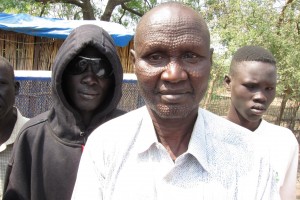 My four-day series on the coming breakup of Sudan in Slate magazine has received good notices from the likes of The Village Voice, The Browser, Bobby Ghosh of Time magazine, Microkhan, and the Wandering Savage.
My four-day series on the coming breakup of Sudan in Slate magazine has received good notices from the likes of The Village Voice, The Browser, Bobby Ghosh of Time magazine, Microkhan, and the Wandering Savage.
In case you missed the tasty 7,500-word opus, here’s a recap:
Part 1: Meet the Bernie Madoff of Sudan
Part 2: Fighting for Freedom in the New Sudan
Part 3: South Sudan: A Million Mutinies Now?
Part 4: South Sudan’s Oil Curse
Since the series began running, the insurgent militia leader Lt. General George Athor, who I quote in Part 3 of the series, has continued his private war in Jonglei state at the cost of some 300 lives. I’m posting, after the jump, notes from my January interview with Athor. I’ll reserve comment except to say the statements of this former golden boy of the Sudan People’s Liberation Army are extremely self-serving.
That’s all for now. I’m off to write a new chapter of The Black Nile to be included in the book’s upcoming Penguin paperback edition. So much has changed on the Nile this year, and so much of if for the better, that I felt the book needed an update.
Meet the Bernie Madoff of Sudan
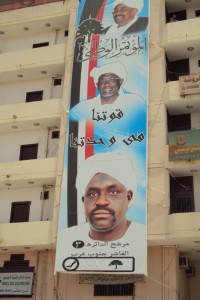 There’s an old saying in Darfur that goes: Kalash au bilash; Kalash begim al kash.
There’s an old saying in Darfur that goes: Kalash au bilash; Kalash begim al kash.
Translation: “You’re trash without a Kalashnikov; get some cash with a Kalashnikov.”
My newest story at Slate.com is about a Darfur police corporal who stole millions without ever flashing a gun.
I hope you enjoy the story of Adam Ismael, his $180 million Ponzi scheme, and Omar al-Bashir’s economic war on Darfur. It’s the first installment in a four-day series on the coming breakup of Sudan. (And here’s a piece I wrote from Sudan in January during the south’s historic independence vote.)
The Dam Bursts in Egypt
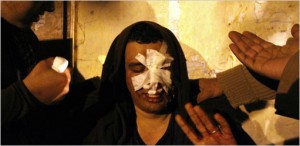 I’m not in Egypt, and I wish I was. Here’s a piece I wrote for Slate.com on the exhilarating and hard-won freedom from fear that has overtaken hundreds of thousands of Egyptians.
I’m not in Egypt, and I wish I was. Here’s a piece I wrote for Slate.com on the exhilarating and hard-won freedom from fear that has overtaken hundreds of thousands of Egyptians.
Meanwhile, as the deadly battle for control of Tahrir Square continues, with at least five dead at the hands of government-organized mobs, a few notes based on conversations with friends on the ground.
* The protests had been peaceful since the black-helmeted riot police were routed earlier this week – “a textbook Gandhian uprising,” as the Al Jazeera English anchor just described it. The young protesters controlling the square were checking people for weapons before allowing them to enter (“I got patted down in the nicest way,” said one female friend, this in a city well-known for the sexual harassment of women.) The violence started with the arrival of pro-Mubarak thugs carrying blades, clubs, razors, firebombs and guns. “A lot of people are going to die, and it’s because Hosni Mubarak, 82 and suffering from pancreatic cancer, does not know when to leave the cocktail party.” Continue reading “The Dam Bursts in Egypt”

